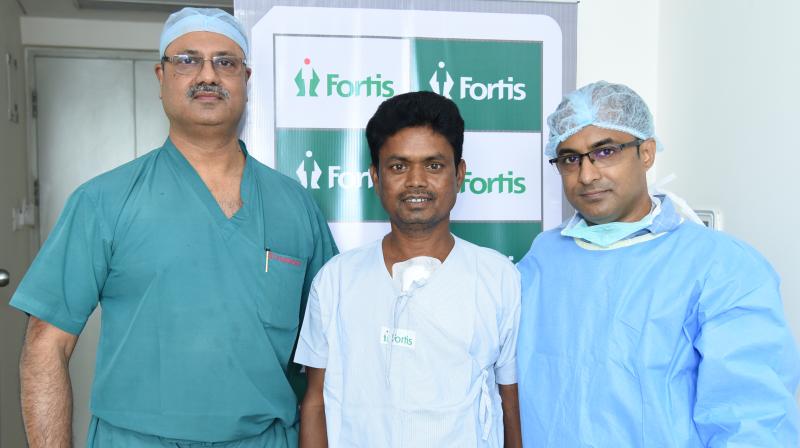First heart transplant patient from Eastern India to be discharged soon
Despite success of first heart transplant, doctors say \"it is just beginning\" as they call for more awareness regarding organ donation.

Every year, an average of five lakh Indians die every year while waiting for an organ replacement. Millions wait for organ transplants. The need to create awareness concerning this noble cause is imperative.
Nevertheless, Indian surgeons and doctors are constantly searching for a solution. Progress in the field of transplantation continues apace. From infants to the elderly, donors and surgeons are transforming lives.
On May 21, 2018, a live heart set the record of travelling from Bengaluru, Karnataka to Kolkata, West Bengal, in the process, covering 18 kilometers of a long, busy stretch from the airport to Fortis Hospital in 18 minutes, with the support of the Kolkata traffic police.
In a few days time, the first heart transplant recipient of Eastern India will be released from medical care. The statement was put forward by the doctors from the medical institution.
As a patient suffering from Dilated Cardiomyopathy, Dilchand Singh had decided to give heart transplant surgery a shot with hopes of recovery. With the success of the surgery, Dilchand Singh states, "I am feeling great. I had given up hope because it was the last stage of heart failure. When I heard about heart transplant surgery I thought of giving it a try; that way even if I die, I would die in good hands. But I am alive now and can move around normally; this is no less than a miracle. I want to go home soon and meet my mother, my wife. I will start giving tuition again in a months time."
The success of the heart transplant has once again given hopes to the patient and his family as he returns to his village in Deogarh, Jharkhand. An expert nurse will be accompanying the patient home, to ensure his well-being, check on his home surroundings and educate his family about how to make sure that he does not acquire any infections.
According to sources, Dr K M Mandana, Transplant Surgeon, Fortis Hospital, Anandapur seems satisfied with the success of the first transplant in Eastern India, as he says, “The patient has responded well to the treatment and we are planning to discharge him from the hospital within the next 2-3 days. He will be travelling by road and will be accompanied by his brother and our staff nurse. The staff nurse will be going with him to check on his home surroundings and to educate his family as to how to ensure that he does not contract any infections. We are providing him medications till we can find an alternative mean to support him financially.”
In spite of the success, Dr Tapas Raychaudhury looks from a different perspective, emphasising the need for organ donations and awareness about this noble cause.
Dr Raychaudhury adds, “This is just the beginning. We need active support from the media to promote awareness about organ donation and to form a pressure group so that more and more doctors support the cause.”
The patient was on waitlist since 2017, however following the success of the operation, the recipient has been under constant observation and responding well to the treatment protocol.
As the first interstate transplant, there has been substantial improvement from the treatment processes of surgeons to the “green corridors” set by the traffic police in achieving this success and propagating awareness about this noble cause of organ donation.
(The article has been written by Jasmin Budhiraja, an aspiring writer and student from Oberoi International School.)

